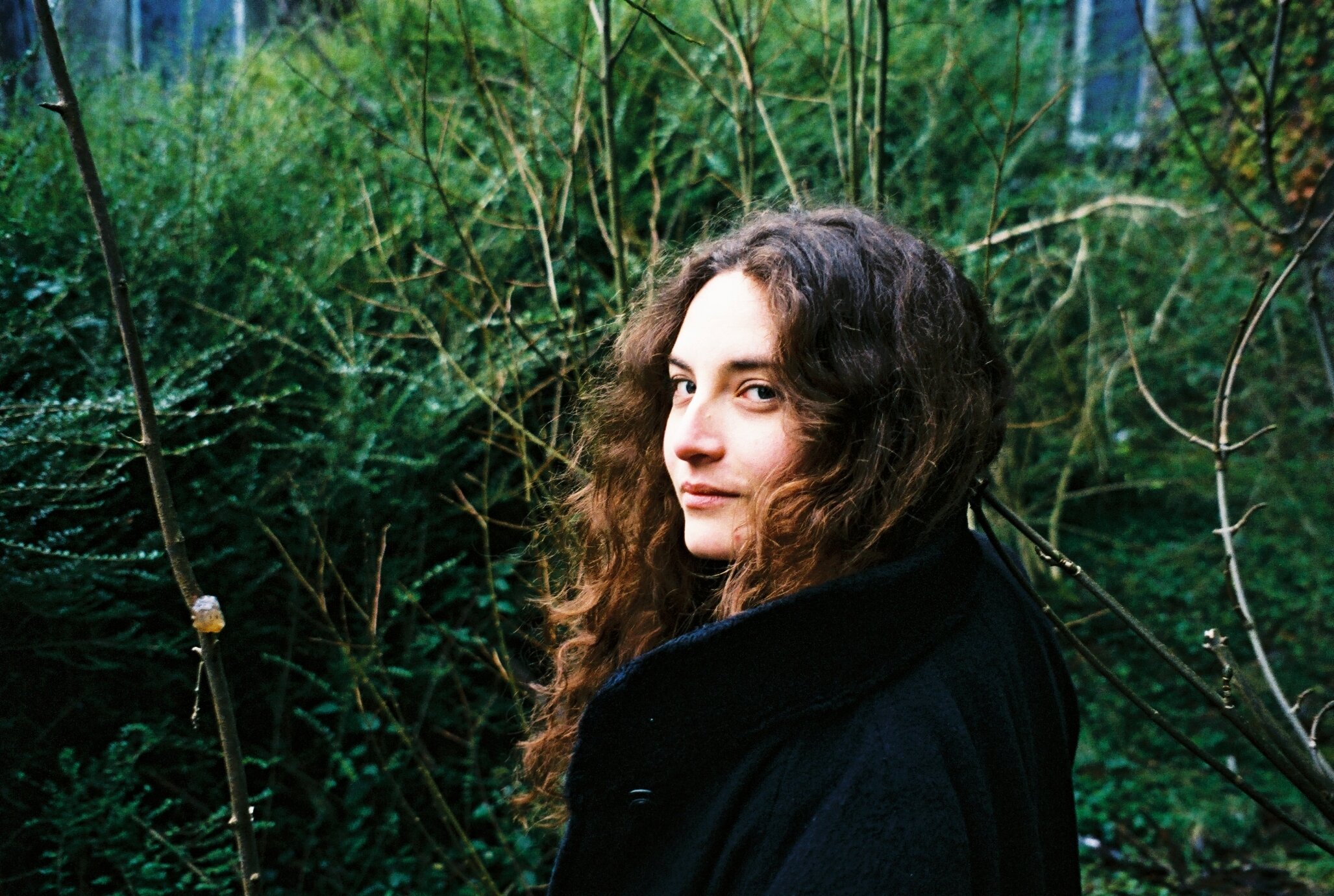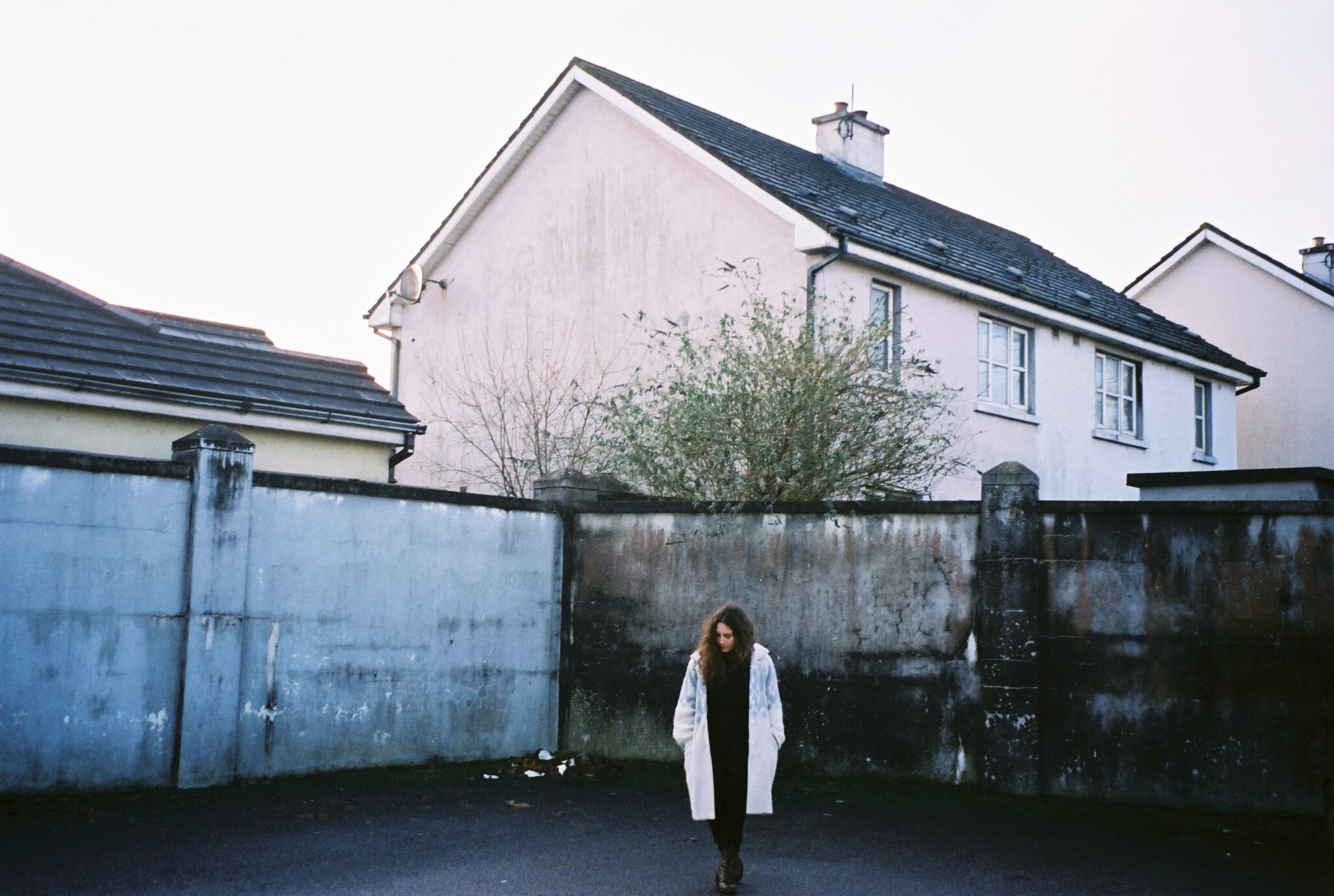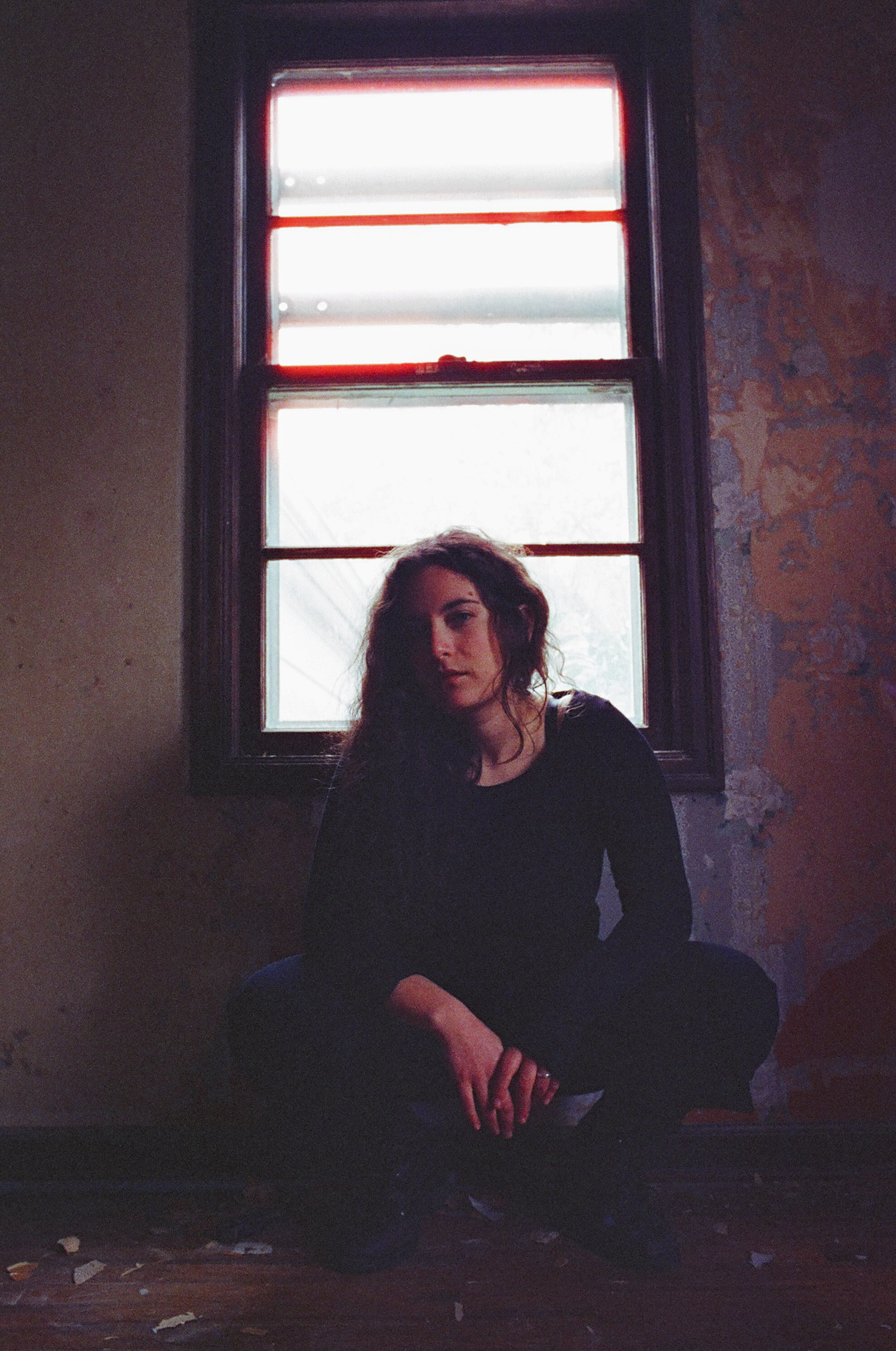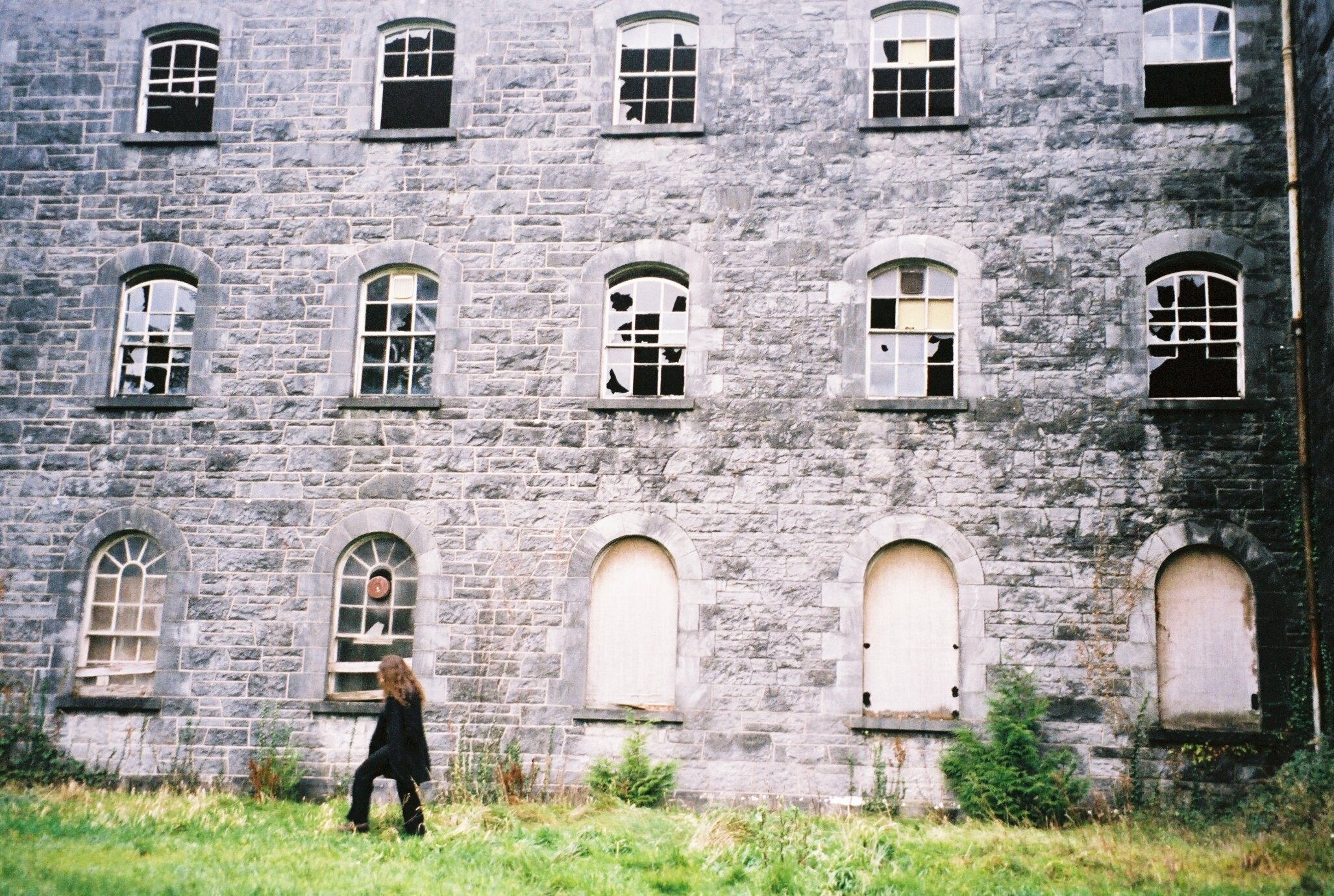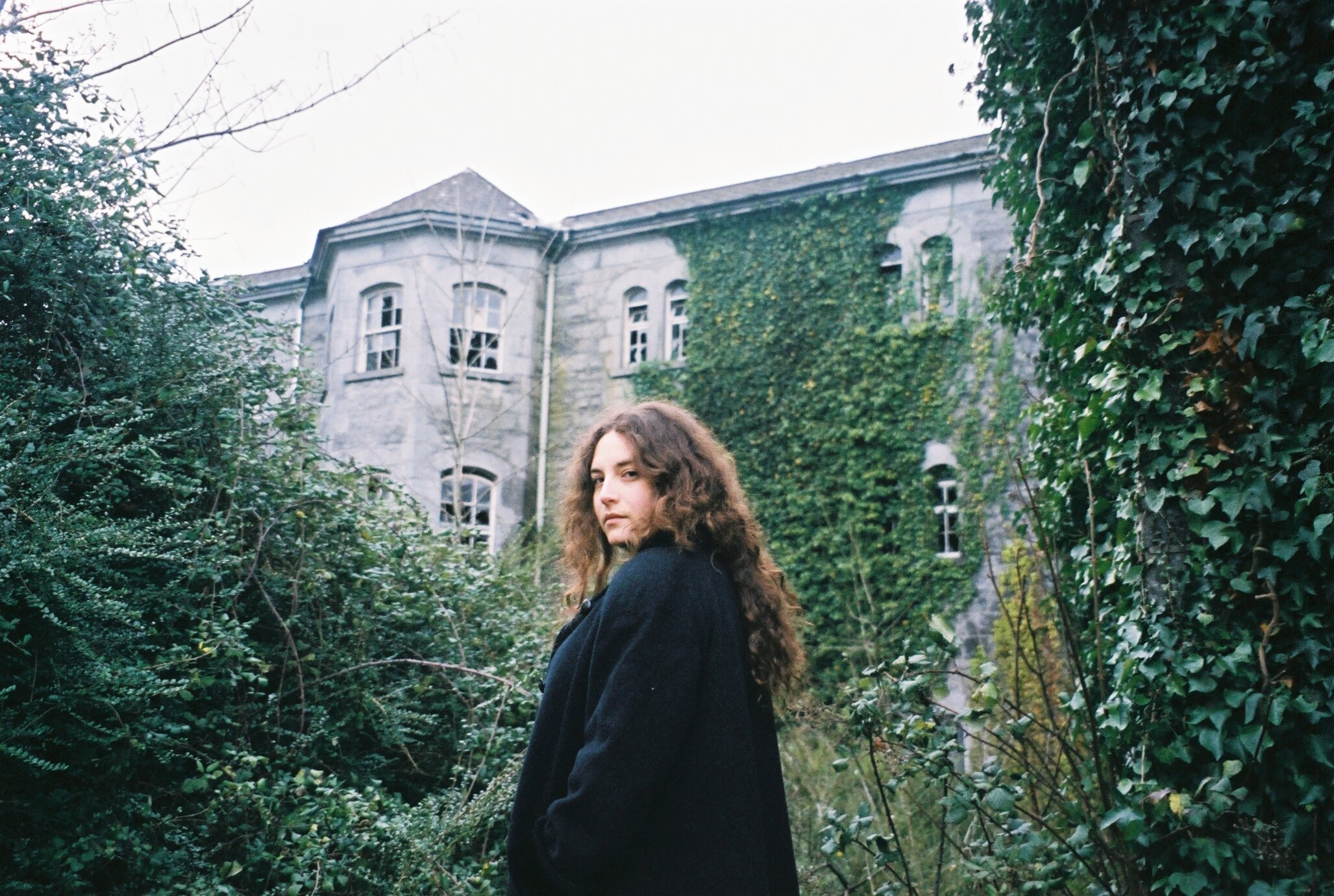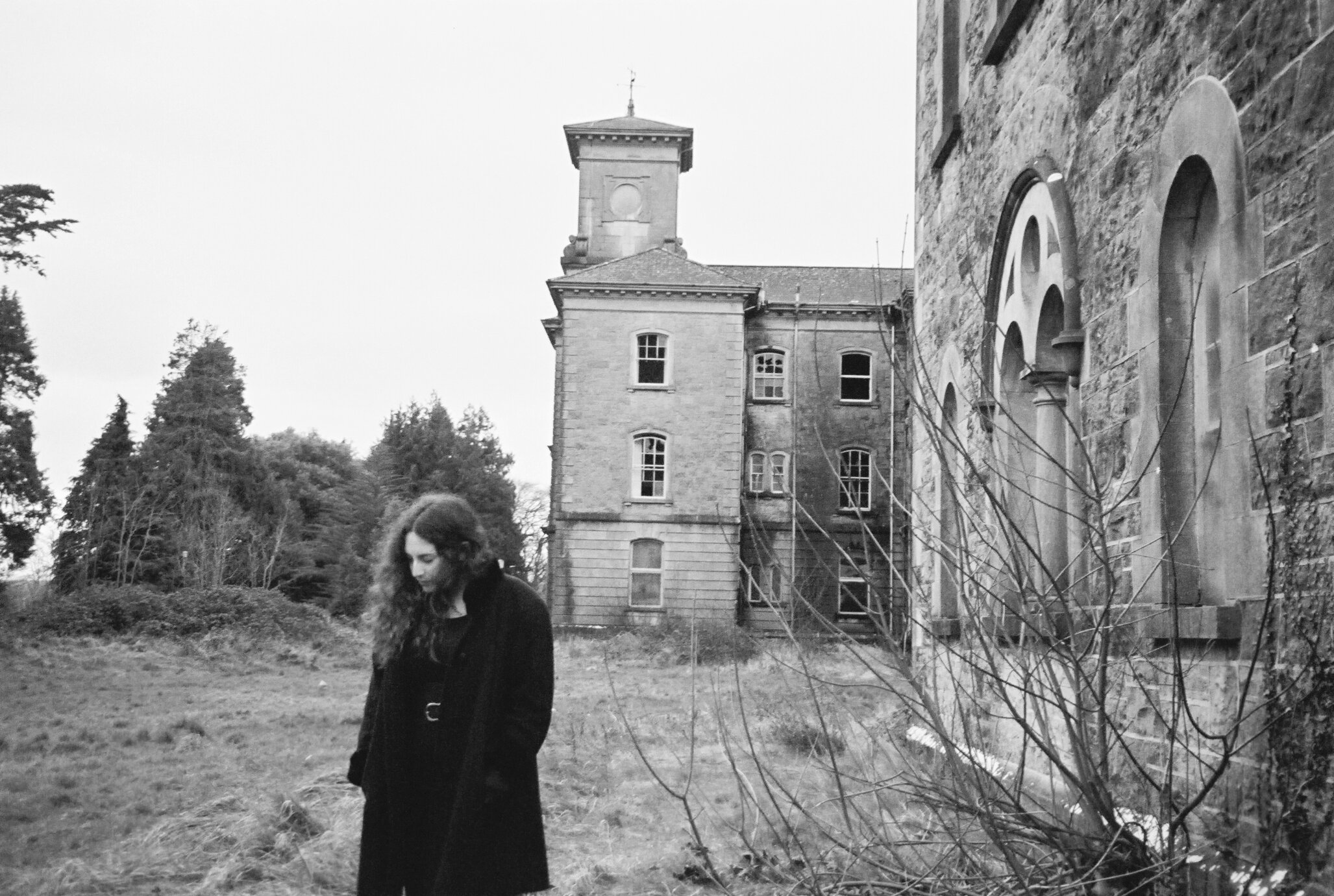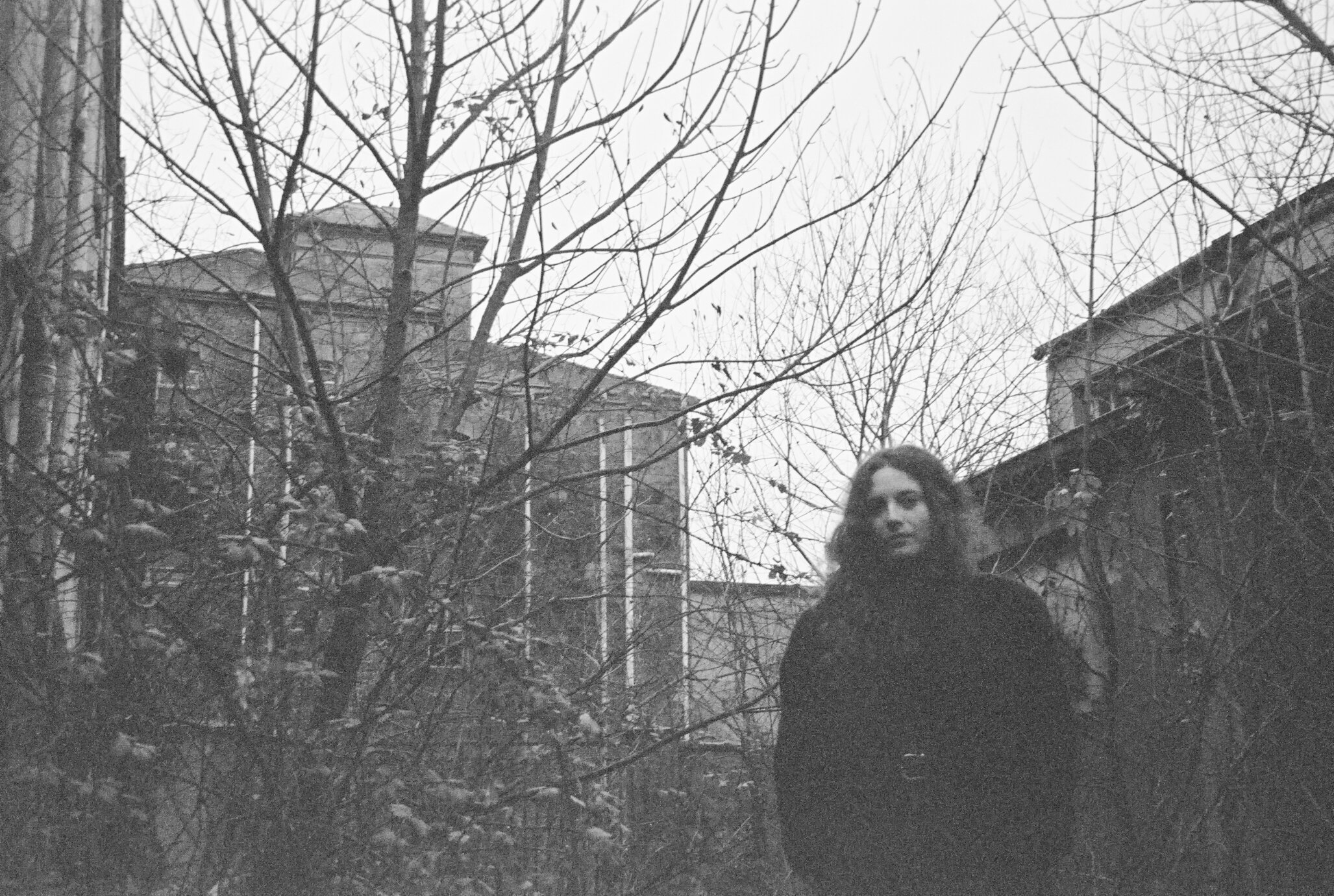The bell keeps tolling. Amelia Baker, who performs as Cinder Well, lives near a Catholic church in a small town in Ireland’s County Clare. Baker traveled here from America to study Irish music, and yet the bell sounds every day, every hour. Growing up in a non-religious, Jewish family in California, the cloistered world of Catholic Ireland must feel a million miles from home, evoking a kind of “Lost in Translation” syndrome that’s present in the sparse soundscapes and haunting stillnesses of her new album, No Summer (coming July 24 on Free Dirt Records). The detachment that comes from a worldwide COVID-19 quarantine (giving a dark symbolism to the album title) only serves to further isolate her. No Summer unfolds slowly, thoughtfully, like a poem in the journal of a traveler. But these songs are not meant to be paens to loneliness, in fact the inspiration behind many of them came from the drive to share music, to connect with people. Baker came to Ireland for its rich pub scene, where each night master musicians cram into corner pubs to play tunes and sing songs. Searching for material to share in these sessions, she looked back to America, to the roots music that first inspired her. There she found a commonality between the two worlds, a way to reckon geography and time through song.
To create No Summer, Baker sought out Nich Wilbur (Black Belt Eagle Scout, Angel Olsen) of “The Unknown” studio in Anacortes, WA. This studio in a converted church is known for its work with The Microphones and Mount Eerie, and its quiet nature gave Baker space to explore the songs. “I was sleeping in the church,” she says “and it felt haunted, but it gave me this incredible experience of being really focused. I was listening to David Lynch’s audiobook about creativity every night. I was in a zone where I had a very clear image of what I wanted to capture in the sound and the story of it.” Her original songs rub shoulders with careful reworkings of traditional Appalachian songs, as Baker parsed the tradition for inspiration. “I gravitate towards ballads from a strong female perspective,” she says, “usually about critiquing men and marriage, and about the struggle and desperation of being a woman in older times. ‘The Cuckoo,’ for example, sends the listener a message to be wary of men, to be whole, proud, unscathed.”
Baker’s original songs refract the multifaceted relationship she has with her Irish home. “No Summer” eerily presaged a season of canceled shows, shuttered pubs, and rings with a sense of isolation: “Rain trippin’ down my brittle dry hair, gazing at the water pooling on the concrete. The steeple makes shadows, dancing with the streetlights, listening to him sing in a language I don’t understand.” “Our Lady’s” personifies an abandoned asylum just outside of town that Baker discovered with some local friends. “The sound of that song captures the feeling of the place,” Baker says. “It has this quiet kind of presence. People don’t talk about the asylum a whole lot, but as I started to bring it up in conversation, they started telling me stories and anecdotes about their connections to it.”
Before she birthed Cinder Well as a doom folk project, Baker came up in the world of anarchist collectives and protests around Santa Cruz, California. She joined Blackbird Raum, one of the best known bands to come out of this scene. Touring Europe for the first time with Raum and her side band Gembrokers, Baker played in squats and collectives, some based in complex and longstanding anarchist communities. In Amsterdam, she played a folk punk festival that first introduced her to Lankum, a band of Irish anarcho-punks that base their music on deep Dublin folk traditions. Their music encouraged Baker to carry on a path that eventually led to her emigration to Ireland to study in County Clare. Clare is the center of a style of Irish music that’s based on deep intuition and thoughtful phrasing known as “the lonesome touch.” This idea refers to slowing down the repertoire as a way to find stillness and empathy in the center of the music’s whirlwind beat. It’s an idea that Baker absorbed into her own songwriting.
Cinder Well is at the vanguard of a very different kind of folk revival, one forged in the uncertainty of these times. Her music isn’t nihilistic, instead it seeks to strip traditional music down to its bones, to the ritual healing that's been there through the ages. It’s a healing we all need now and a balm that brings her closer to home. No Summer is an album caught between worlds: recorded in a church on the West Coast of the US, inspired by the tolling of a church in Ireland, made from the perspective of a young woman who has made a home in the space between.
Tracklist
1. Wandering Boy
2. No Summer
3. Our Lady’s
4. Fallen
5. The Cuckoo
6. Old Enough
7. Queen of the Earth, Child of the Skies
8. The Doorway
9. From Behind The Curtain


